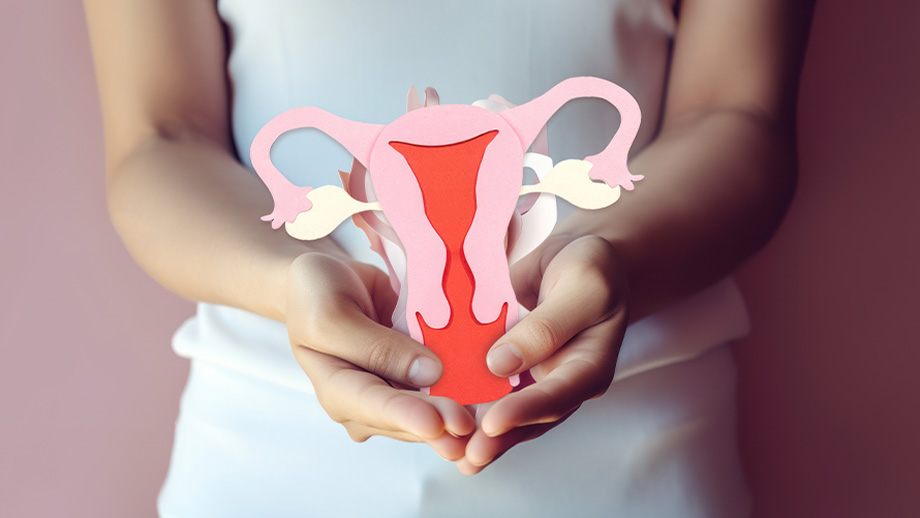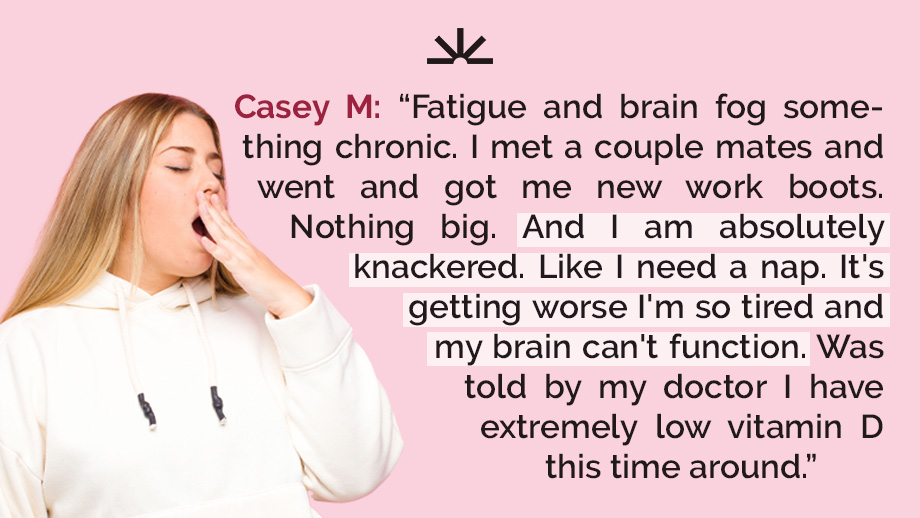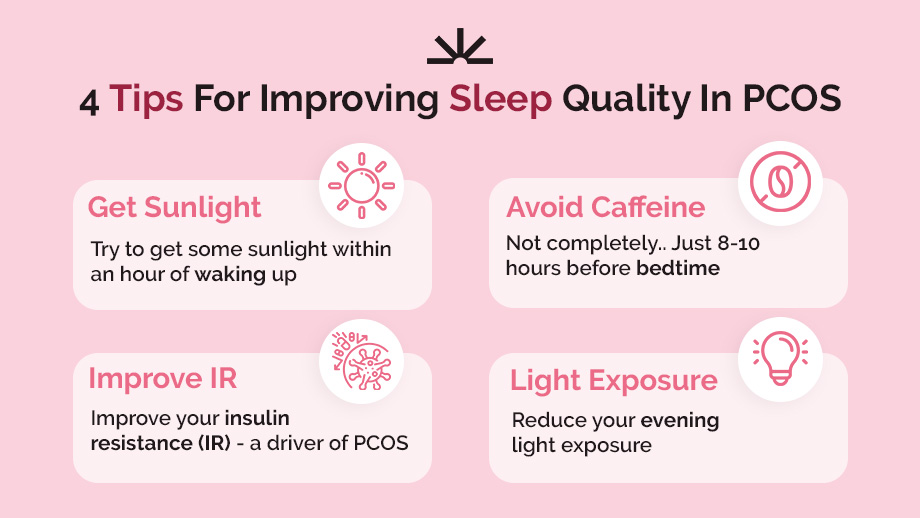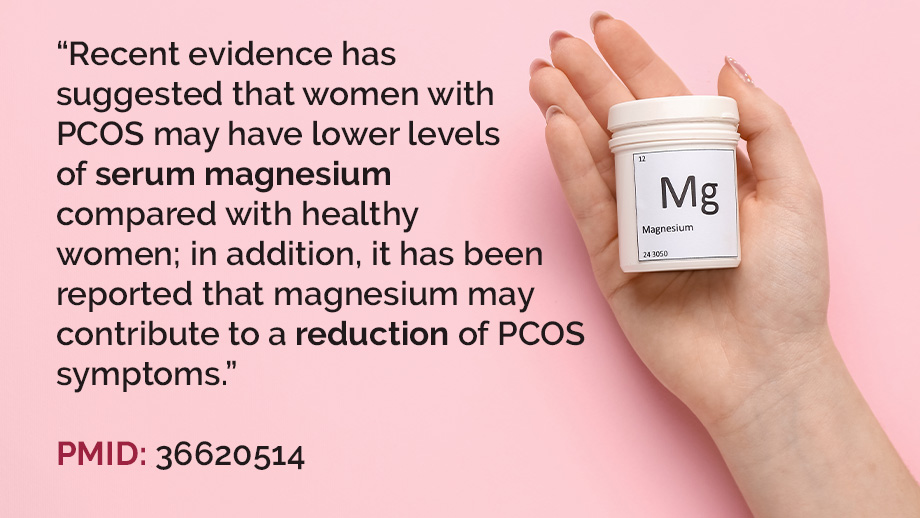Do you feel constantly fatigued every day — like no matter how much sleep you get, you always feel exhausted and weak? If you suffer from chronic fatigue, your PCOS may be behind it.
Sometimes women don’t associate feelings of exhaustion and lethargy with polycystic ovarian syndrome. But this is a highly overlooked, common symptom of PCOS.
Some people may make ignorant comments that you’re simply lazy. However, chronic fatigue and weakness are more than just feeling tired. It is very real and doesn’t mean you just like to sleep or are lazy.
So let’s get to the bottom of why you may feel so tired every day and how you can improve your energy levels.
What Is PCOS?

What Is PCOS?
Polycystic ovarian syndrome is a complex endocrine disorder. It affects many aspects of your body through the hormonal system. Additionally, it is one of the most common women’s health conditions affecting as much as 13% of women worldwide.
Some of the most common symptoms include irregular menstrual cycles, lack of ovulation, high testosterone and androgens, facial hair, hair loss, acne, and fatigue.
The hormonal imbalances throughout the female body can lead to other health risks such as anemia, insulin resistance, vitamin deficiencies, heart disease, diabetes, and more.
Thus some of the symptoms of PCOS can cause another. For example, insulin resistance can lead to high blood sugar levels, contributing to weight gain and fatigue. But what actually causes low energy?
Does PCOS Cause Fatigue?
Fatigue and daytime tiredness are not the same thing. People often feel tired from everyday activities and busy schedules. But when that tiredness causes you to fall asleep during work or impact your ability to perform normal tasks, it becomes a problem.
PCOS is a complex endocrine disorder, meaning many hormones contribute to a wide range of symptoms. Your ovaries may not cause fatigue, but the body’s hormonal imbalances can.
Additionally, as hormones have ever-changing cycles, you may experience fatigue at different times of the day, week, month, or year. You may not have had this symptom last year, but this year it has come on with a vengeance.
That’s because many external factors also contribute to fatigue in PCOS, such as chronic stress and menstrual irregularities. Let’s look at some more common root causes.

Casey M. / What Does PCOS Fatigue Feel Like?
What Causes PCOS Fatigue?
You may experience fatigue for several reasons. First, many women with PCOS have a vitamin D deficiency. The lack of this hormone can cause fatigue, bone and muscle problems, and sleep disturbances, contributing to more tiredness.
It can also cause dizziness. So if you wake up after an unexpected mid-day nap and feel a little dizzy, vitamin D deficiency may contribute.
Additionally, many women with PCOS experience very heavy periods and vitamin B12 deficiency. Blood loss can lead to anemia. Vitamin B12 restores blood counts, so a lack of this vitamin can also cause iron deficiency, contributing to anemia.
In anemia, a lack of red blood cells means insufficient oxygen is circulating through your body and in your organs. This can also cause lethargy, dizziness, shortness of breath, light-headedness, or a fast heartbeat.
Furthermore, sleep disturbances also can cause feelings of fatigue and daytime sleepiness in women with PCOS. Sleep apnea, high cortisol (stress hormone), low progesterone, and insomnia affect your ability to get sufficient quality sleep. Waking up tired only makes matters worse.
Finally, PCOS correlates with insulin resistance. If your body can’t shuttle glucose into the cells for energy, you end up with high blood sugar and fatigue. Thus no matter how much sleep you get, how well you eat, and how often you exercise, you can still experience constant tiredness and low energy levels. Improving insulin sensitivity can help your energy levels.
How to Manage Energy Levels Throughout the Day With PCOS?
Women with PCOS have a higher rate of vitamin deficiencies, sleep apnea, and insulin resistance. Unfortunately, this makes a perfect storm for chronic fatigue you can’t seem to battle.
Trying to go to bed early and get enough sleep doesn’t seem to touch the daily tiredness and low energy. So what do you do about it?
Well, you can’t always take a nap in the middle of the day. But you can make a few small adjustments to your daily routine to improve your energy levels and PCOS symptoms.
These include getting a good nutrient-rich breakfast, going for a walk in the sunlight, having a good sleep routine, and lowering stress. So let’s talk about some natural ways to improve your chronic fatigue.
Natural Ways to Improve Chronic Fatigue From PCOS
If you need more energy to make it through your day, try these natural ways to decrease PCOS fatigue. You can start with a couple and add more in, or jump into them all at once. Whatever strategy you choose, these lifestyle changes can increase your energy and may also help with other PCOS symptoms.
Sleep Routine

Tips For Improving Sleep In PCOS
Sleeping poorly at night can make staying awake during the day harder. And since PCOS can cause several sleep disorders such as sleep apnea and insomnia, this may feel extra hard to do.
First, put away your phone and electronic devices at least an hour before bed. The blue light from screens can throw off your circadian rhythm.
Second, do things to unwind at night. You may choose to journal to decrease overthinking while lying in bed. Or you could take a bath, read a book, meditate, and spend quality time with your loved ones. These can help reduce stress and prepare your mind and body to sleep.
Third, wake up early. This has proven to improve energy, mood, and mental health. Additionally, try going to bed early. Getting an extra hour of sleep at night can help reduce daytime fatigue.
Waking up early won’t have the same benefits if you still go to bed late. Thus, going to bed early and waking early in the morning has much more substantial benefits.
But none of those benefits will last if you’re not consistent. Go to bed and wake at the same time everyday, even on the weekends. This can help your circadian rhythm and fatigue.
Finally, avoid sugar and high glycemic meals before bed. This can cause the body to spike insulin and lead to a crash. Sugar crashes at night or while you sleep can contribute to fatigue and sleep disturbances.
Exercise
Exercise works on several levels to improve fatigue and energy levels. First, it can jump-start mitochondria production in your cells. The powerhouse of the cell converts glucose to energy. So the more mitochondria you have, the more energy you can produce.
Additionally, exercising can increase the oxygen flow in your body. Without enough oxygen, you can experience fatigue, dizziness, and weakness. And the more oxygen in the blood, the more effective your cells and other processes become.
And exercise can also improve hormone responses, contributing to fatigue in PCOS. For example, it can lower insulin resistance. When insulin works better to shuttle sugars into the cells, your body can produce more energy and avoid crashes.
Getting 30 minutes of moderate exercise a day can boost your energy, sleep quality, and mental health. Going for daily walks, practicing yoga, doing resistance training, or other forms of exercise several times a week can reduce chronic fatigue.
However, many women find getting started challenging because they have no energy. Try finding ways to get and stay motivated such as having a walking buddy, starting with short and simple exercises, and praising yourself when you do.
Nutrition

PCOS Nutrition
Good nutrition plays a vital role in battling PCOS fatigue. If you don’t get enough energy and nutrients from your food, you can experience sugar crashes and energy drops.
Your cells need energy to function. You get energy from food. But not all food has the same effects or benefits for your body.
Women with PCOS often have insulin resistance. Insulin is the hormone that acts as a key to unlock the cell door and allow glucose to enter.
When you eat sugary and high-glycemic foods, your body can’t get the glucose into the cells due to insulin resistance. This means you have high blood sugar, which can cause energy crashes.
Additionally, not getting enough nutrients, such as iron and vitamin C, can also affect fatigue. Eat foods high in iron, such as beans and nuts, paired with foods high in vitamin C to increase absorption. This can help battle anemia-induced fatigue.
Other energy-boosting diet tips include eating lots of vegetables, complex carbs such as quinoa and legumes, and lean protein such as chicken breast, eggs, and fish.
Furthermore, breakfast is the most important meal of the day. But to avoid excessive tiredness, avoid sugar in the morning. Eat protein and fiber in the morning to sustain your energy levels throughout the day.
Hydration
Symptoms of dehydration include fatigue, dizziness, and lightheadedness. If you experience these symptoms during the day, you may not drink enough water. Water also helps to transport oxygen through the body.
Combine this with iron and vitamin B12 deficiencies, and your body may just be gasping for air. Drinking enough water throughout the day can help hydrate you and improve your energy.
Women should aim for about 11.5 cups of water a day or more if they take certain medications or are menstruating. Carry a water bottle with you during the day. If you struggle to remember to drink, you may set alarms on your phone or use daily water apps.
What Vitamins to Take for PCOS Fatigue
Due to vitamin deficiencies and nutrient malabsorption being common in PCOS, you may need to supplement your diet. Many essential vitamins, minerals, and nutrients support energy and oxygen levels in the body.
Talk to your doctor about supplements to help with your fatigue. They can help you determine the root causes of your excessive sleepiness and provide better recommendations.
Magnesium
Magnesium is an essential mineral needed for your muscles, nerves, and energy. But a deficiency can cause muscle weakness and lethargy.
Adding this supplement to your diet can help your energy levels. It can also help you fall asleep naturally and improve sleep quality, which can combat daytime fatigue.

Magnesium and PCOS
Vitamin D
You may also supplement with vitamin D to decrease excessive daytime sleepiness. You can get vitamin D by going outside and getting regular sunlight.
Going outside every day can improve your vitamin D levels over time. However, simply getting sunlight may not suffice if you have a deficiency. Taking a vitamin D3 plus magnesium supplement will help with absorption.
B Vitamins
B vitamins support enzymes throughout the body in functions such as releasing energy from food and transporting oxygen and nutrients.
Some of the most common of the eight B-group vitamins include folate (B9), biotin (B7), niacin (B3), and cyanocobalamin (B12).
The body doesn’t produce B-12. Thus, you need to get it from food or supplementation. It supports the nervous system and red blood cell and DNA production.
You can get B-12 from animal products such as fish, meat, eggs, and dairy. Taking a B-vitamin complex supplement can help reduce fatigue in PCOS by improving energy metabolism and blood oxygen levels.
And if your doctor finds that you have a B-12 deficiency, they can help you decide what dosage to take.
Vitamin C
Vitamin C is vital for bones, muscles, and tendons. But it also plays a role in adrenal functions. The adrenal glands produce hormones essential for many vital processes, such as the immune system, stress responses, and metabolism.
Vitamin C is essential in synthesizing amino acid conversion to dopamine and adrenalin. However, the human body can’t make vitamin C on its own. And a deficiency can lead to fatigue, weakness, bruising, and scurvy.
Women with PCOS may have issues with their adrenal glands and hormone balance. And supplementing with this essential vitamin can help improve PCOS fatigue.
You can also get it from food such as peppers and black currants. Vegetables such as kale, spinach, broccoli, and citrus fruits contain smaller amounts. However, cooking these vegetables reduces their vitamin C by 50%.
Iron
If you have anemia, you can supplement with iron, increasing red blood cells and oxygen count to improve fatigue. It is an essential mineral for cell function. You can find it in seafood, lentils, nuts, beans, and spinach. You can improve iron absorption with vitamin C.
Before taking an iron supplement, talk to your doctor. They can run labs to see if you have an iron deficiency. Only take it if you have low iron levels. If you have very heavy periods due to your PCOS, tell your doctor. You may experience low iron or anemia, contributing to your heavy bleeding.
Can You Cure Chronic Fatigue?
Feeling exhausted all day, not sleeping well at night, and battling stress can really take its toll. The complex nature of PCOS can make it difficult to pinpoint the exact cause of your chronic fatigue. And many factors may play a role, from insulin resistance to vitamin deficiencies.
However, you can find relief. It may take some time to start noticing a difference, but your body can start recovering with the right daily routines and supplementation plans. Feeding your body in the right ways and doing simple lifestyle modifications can make a huge difference.

Make Exercise Part Of Your Daily Routine
Additionally, some people don’t realize their daytime tiredness is anything more than working hard and everyday life stressors. However, when consistent low energy affects your ability to work and think normally, you should seek help.
Tell your doctor as much as you can about your symptoms. For example, note if you feel fatigue and muscle weakness in the afternoon. Or perhaps you always need a nap and wake up feeling weak and lightheaded. These can be telltale signs of something serious.
Don’t minimize your symptoms because people may say you’re lazy or need to sleep better. Uninformed opinions shouldn’t stop you from seeking care. You can feel energized again and find relief from your PCOS fatigue.
Is chronic fatigue a symptom of your PCOS?








